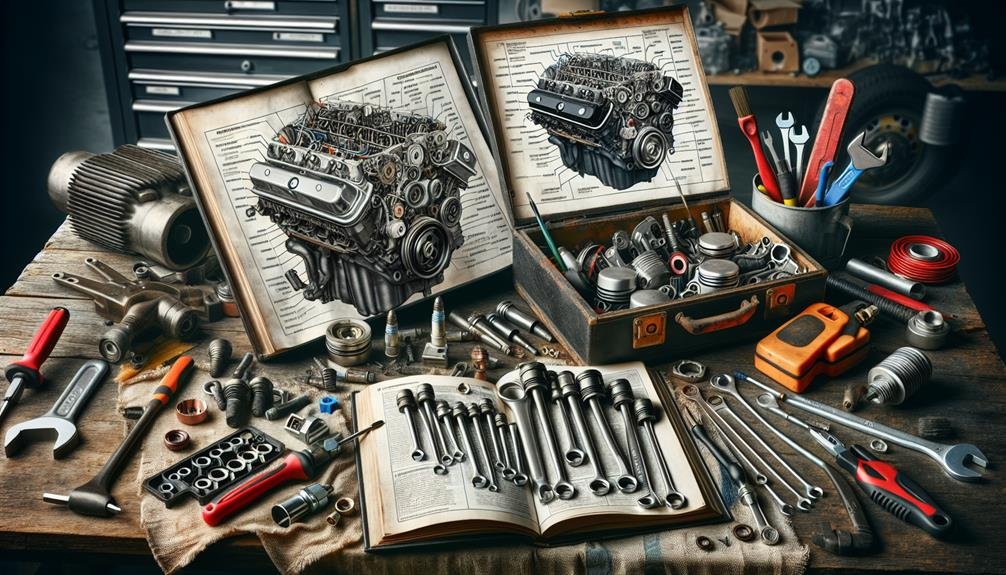Performing DIY repairs on your car can be both rewarding and cost-effective, provided you have the right parts. Understanding which parts are essential for DIY repairs can help you tackle common issues efficiently and avoid unnecessary trips to the mechanic. This article will highlight the top car parts for DIY repairs, giving you the knowledge needed to keep your vehicle in excellent condition while saving time and money.
Why Knowing the Right Parts for DIY Repairs Matters
Firstly, knowing the right parts for DIY repairs is crucial for effective vehicle maintenance. Many car repairs can be performed at home with the correct parts and tools, making car care more accessible and affordable. However, using incorrect or low-quality parts can lead to further issues or even damage your vehicle. Therefore, focusing on high-quality parts designed for DIY repairs is essential for achieving reliable and long-lasting results.

Essential Parts for DIY Repairs
1. Brake Pads and Rotors
Brake pads and rotors are among the most commonly replaced parts in DIY repairs. Over time, brake pads wear out and need replacing to maintain safe stopping power. Similarly, rotors can become worn or warped, affecting braking performance. Replacing these parts yourself can be straightforward with the right tools. Ensure you use high-quality brake pads and rotors to guarantee safety and performance.
2. Oil Filters
Changing the oil filter is a routine maintenance task that can significantly affect engine performance. Oil filters trap contaminants from the engine oil, preventing them from causing damage. Replacing the oil filter regularly, along with an oil change, is essential for keeping your engine running smoothly. Choose reliable oil filters that match your vehicle’s specifications to ensure proper filtration and performance.
3. Air Filters
Air filters are crucial for maintaining optimal engine performance and fuel efficiency. They prevent dirt and debris from entering the engine, which can lead to reduced power and increased fuel consumption. Replacing air filters is a simple DIY task that can improve your vehicle’s performance and longevity. Ensure you select air filters that are compatible with your car’s make and model for the best results.
4. Spark Plugs
Spark plugs play a vital role in the ignition process of your vehicle’s engine. They ignite the air-fuel mixture in the combustion chamber, enabling the engine to run efficiently. Over time, spark plugs can become worn or fouled, leading to poor performance and fuel economy. Replacing spark plugs is a manageable DIY task with the right tools. Use high-quality spark plugs that meet your vehicle’s specifications for optimal performance.
5. Battery and Battery Terminals
A well-functioning battery is essential for starting your vehicle and powering electrical components. Battery terminals can corrode or become loose, leading to starting issues or electrical problems. Replacing a faulty battery or cleaning corroded terminals is a common DIY repair. Ensure you select the correct battery type and size for your vehicle and properly secure battery terminals to maintain a reliable electrical system.
Tips for Successful DIY Repairs
1. Use Quality Parts
When selecting parts for DIY repairs, prioritize quality over cost. High-quality parts ensure better performance and longevity, reducing the likelihood of future issues. Avoid cheap or generic parts that may not meet your vehicle’s specifications, as they can lead to poor performance or even damage.
2. Consult Your Vehicle’s Manual
Always consult your vehicle’s manual when performing DIY repairs. The manual provides valuable information about part specifications, installation procedures, and maintenance schedules. Following the manufacturer’s guidelines helps ensure that you use the correct parts and perform repairs correctly.
3. Gather the Right Tools
Having the right tools is essential for successful DIY repairs. Invest in a good set of hand tools, including wrenches, sockets, and screwdrivers. Additionally, specialized tools such as a brake caliper tool or oil filter wrench can make specific tasks easier and more efficient. Using the appropriate tools ensures that you can complete repairs accurately and safely.
4. Follow Safety Precautions
Safety should always be a priority when performing DIY repairs. Wear appropriate safety gear, such as gloves and safety glasses, to protect yourself from injuries. Additionally, ensure your vehicle is securely lifted and supported with jack stands before working underneath it. Following safety precautions helps prevent accidents and ensures a smooth repair process.
5. Seek Professional Help When Needed
While many DIY repairs are manageable with the right parts and tools, some tasks may require professional expertise. If you encounter complex issues or feel unsure about a repair, consider seeking help from a qualified mechanic. Professional assistance ensures that repairs are performed correctly and safely, avoiding potential problems down the line.
Conclusion
In conclusion, selecting the top car parts for DIY repairs is crucial for maintaining your vehicle and performing repairs effectively. Brake pads and rotors, oil filters, air filters, spark plugs, and batteries are essential components that you can address yourself with the right parts and tools. By prioritizing quality, consulting your vehicle’s manual, gathering the right tools, following safety precautions, and seeking professional help when needed, you can successfully tackle DIY repairs and keep your car in excellent condition.




